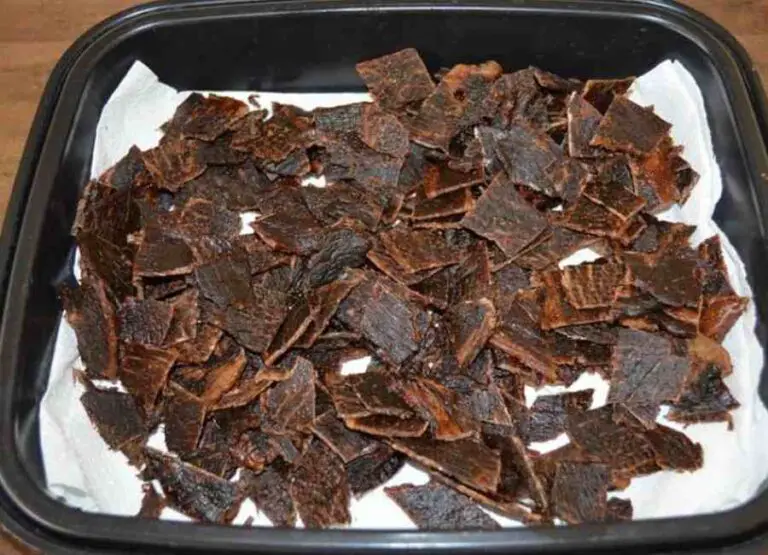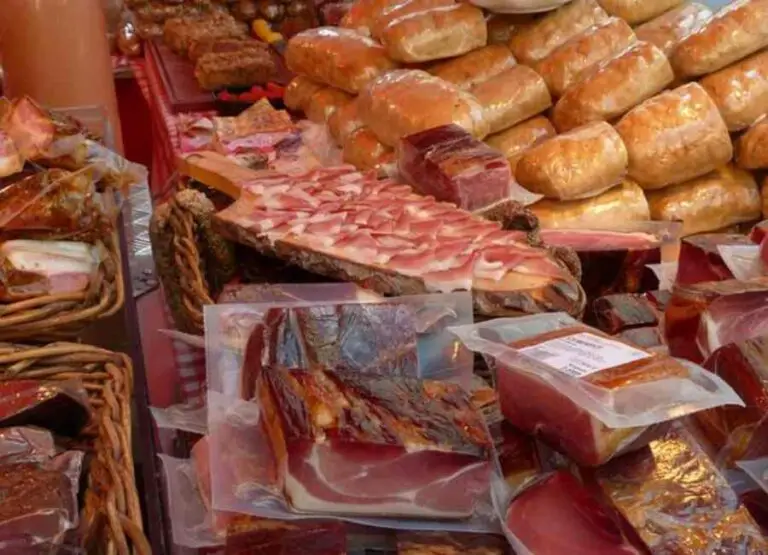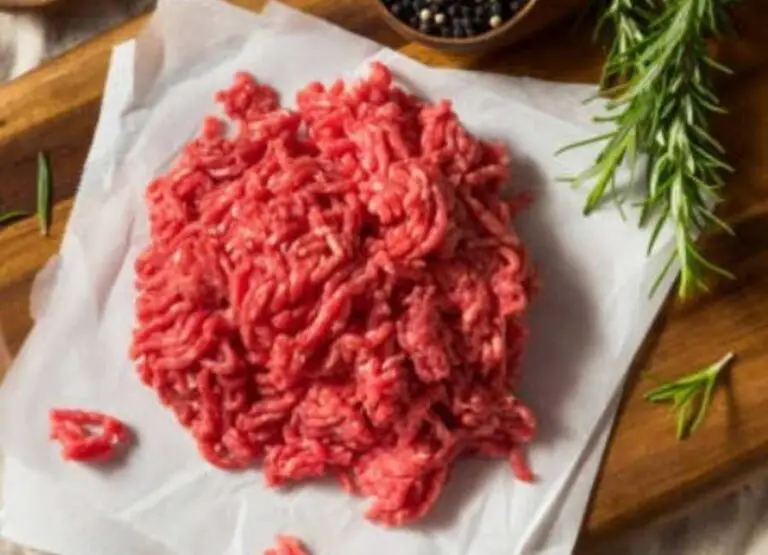Can A High Protein Diet Cause Constipation [Answered]
One issue that some people experience when switching to a high-protein diet is constipation.
In this blog post, we will explore whether or not a high-protein diet can cause constipation and provide tips on how to prevent it.
So, read on to learn more and ensure that your high-protein diet is working in your favor!
Can A High Protein Diet Cause Constipation
Yes, a high-protein diet can cause constipation, however, it is not the protein itself that causes constipation, but rather the lack of fiber in a high-protein diet that can lead to digestive problems.
Those who eat a diet high in protein and low in fiber have a tendency to eat fewer fruits and vegetables, which are key sources of fiber.
This reduction in fiber intake may slow down digestion and result in constipation.
Include fiber-rich foods like fruits, vegetables, and whole grains in your diet if you want to avoid constipation while eating a high-protein diet.
Constipation can also be relieved by consuming lots of liquids and staying hydrated.
How high protein diets can cause constipation
One common negative effect of a high-protein diet is constipation, this is due to the fact that high-protein diets frequently lack fiber, which is necessary for sustaining regular bowel motions.
Constipation is avoided thanks to fiber’s role in maintaining the stool’s softness and ease of passage through the digestive tract.
Constipation can result from the body’s inability to pass feces when it lacks fiber.
Also, protein requires more time to digest than other nutrients, which might result in constipation.
To prevent constipation and preserve general digestive health, it’s crucial to eat a balanced diet that contains fiber-rich foods like fruits, vegetables, whole grains, and legumes.
The Relationship between High Protein and Constipation
A high-protein diet may be lacking in fiber, which is necessary for preserving healthy bowel function, which is one explanation for the association between high protein and constipation.
Moreover, due to the low water and fiber content of some high-protein foods like processed and red meat, constipation may be a side effect.
Constipation, however, can also be caused by other reasons, such as dehydration and a sedentary lifestyle.
To avoid constipation, it’s crucial to have a balanced diet with enough fiber and water intake, as well as consistent exercise.
It is crucial to maintain a balanced and healthy diet to promote good digestive health, even though the connection between protein intake and constipation is not entirely known.
The link between high protein diets and digestive issues
Many studies have found a link between digestive problems and high-protein diets.
It is not always a good idea to consume a lot of protein because it might lead to digestive issues including constipation, diarrhea, and bloating.
High protein diets can also upset the normal equilibrium of the gut bacteria, which can cause digestive issues.
However, the severity of digestive problems is influenced by a variety of factors, including the type and quantity of protein consumed and the person’s general health.
Before making any big dietary changes, you must speak with a medical practitioner.
Learn more about meat with the highest protein.
Factors that Contribute to Constipation on a High Protein Diet
On a high-protein diet, there are various things that can cause constipation.
These are a few typical examples:
- Lack of fiber: Protein-rich foods often lack fiber, which is needed for bowel movements. This can lead to constipation.
- Low water intake: Protein-rich foods can be dehydrating, so it’s important to drink plenty of water to avoid constipation.
- Lack of exercise: Exercise helps stimulate the bowel and can prevent constipation. A sedentary lifestyle can contribute to constipation.
- Aging: As we age, our digestive system may not work as efficiently, which can lead to constipation.
- Processed foods: A high intake of processed foods can contribute to constipation due to their low fiber and high-fat content.
- Lack of variety: A high-protein diet may lack variety in terms of food choices, leading to a limited range of nutrients and fiber.
- Unbalanced diet: A diet that is unbalanced or lacks variety can cause constipation, as the body needs a wide range of nutrients to maintain healthy bowel movements.
- Overconsumption of dairy: Dairy products like cheese can contribute to constipation in some people.
- Medication: Certain medications, including those used for pain management and high blood pressure, can cause constipation as a side effect.
To encourage regular bowel movements and ward off constipation, it’s crucial to maintain a balanced diet rich in fiber, water, and exercise.
Learn more about protein equivalent to eggs.
Tips to Avoid Constipation on a High-Protein Diet
Here are some common tips to avoid constipation on a high-protein diet:
- Increase Water Intake: High-protein diets can be dehydrating, so it’s important to drink plenty of water to help prevent constipation.
- Eat High-Fiber Foods: High-fiber foods can help regulate bowel movements and prevent constipation. Some high-fiber foods to consider include fruits, vegetables, nuts, and seeds.
- Incorporate Probiotics: Probiotics can support gut health and improve bowel regularity, which can help prevent constipation. Consider adding fermented foods such as yogurt or taking a probiotic supplement.
- Exercise Regularly: Regular exercise can help stimulate bowel movements and prevent constipation. Aim for at least 30 minutes of exercise each day.
- Avoid Processed Foods: Processed foods are typically low in fiber and can contribute to constipation. Try to stick to whole, unprocessed foods as much as possible.
- Limit Alcohol and Caffeine: Both alcohol and caffeine can dehydrate the body and contribute to constipation. Try to limit or avoid them if possible.
- Don’t Skip Meals: Skipping meals can disrupt bowel movements and contribute to constipation. Aim to eat regular, balanced meals throughout the day.
- Try Magnesium: Some studies have shown that magnesium supplements can help treat constipation. Consult with a doctor or dietitian beforehand to determine if magnesium supplements are right for you.
- Don’t Overdo it with the Protein: While protein is important for building and repairing muscle tissue, too much protein can be difficult for the body to digest and lead to constipation. It’s important to balance protein intake with fiber sources and prioritize whole, nutrient-dense foods in your diet.
Learn more about red meat and constipation.
Frequently Asked Questions
Can a high-protein diet cause constipation?
Yes, a high-protein diet can cause constipation. This is because protein tends to slow down the digestive process and reduce the frequency of bowel movements.
How does a high-protein diet cause constipation?
A high-protein diet can cause constipation because protein-rich foods tend to be low in fiber, which is necessary for regular bowel movements.
Moreover, protein requires more fluids to digest, leading to dehydration and subsequently making the stool drier and harder to pass.
How can I prevent constipation on a high-protein diet?
To prevent constipation on a high-protein diet, make sure to drink plenty of water and fluids.
Additionally, incorporate fiber-rich foods such as fruits, vegetables, and whole grains into your diet.
Can taking supplements on a high-protein diet cause constipation?
Yes, taking supplements such as whey protein, creatine, and amino acid supplements can cause constipation since they tend to have low fiber content.
What are some symptoms of constipation on a high-protein diet?
Symptoms of constipation on a high protein diet may include difficulty passing stools, infrequent bowel movements, abdominal discomfort, and bloating.
Who is more likely to experience constipation on a high-protein diet?
Anyone who consumes a protein-rich diet without enough fiber and fluids is likely to experience constipation.
However, people with pre-existing gastrointestinal conditions such as irritable bowel syndrome (IBS) may be at a higher risk.
Conclusion
In conclusion, while a high-protein diet can have many benefits, it is important to be aware of the potential side effects such as constipation.
By incorporating fiber-rich foods and staying hydrated, you can help prevent constipation and maintain a healthy digestive system.
As with any dietary change, it is always best to consult with a healthcare professional to determine what is best for your individual needs.
Remember, a balanced diet and healthy lifestyle are key to overall wellness.







![Do You Flip Meat When Smoking [Answered]](https://foodcreeks.com/wp-content/uploads/2023/02/Do-You-Flip-Meat-When-Smoking-768x555.jpg)